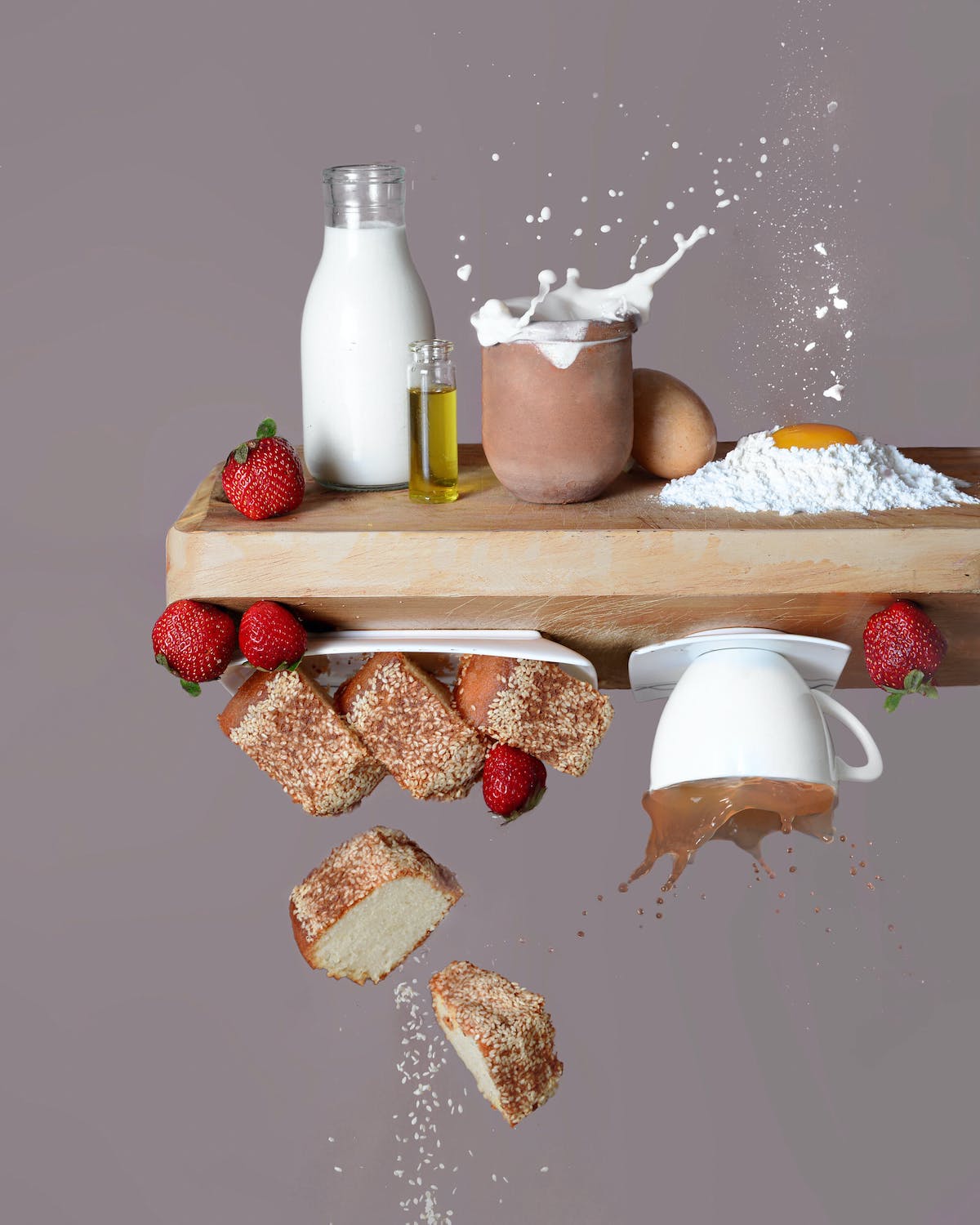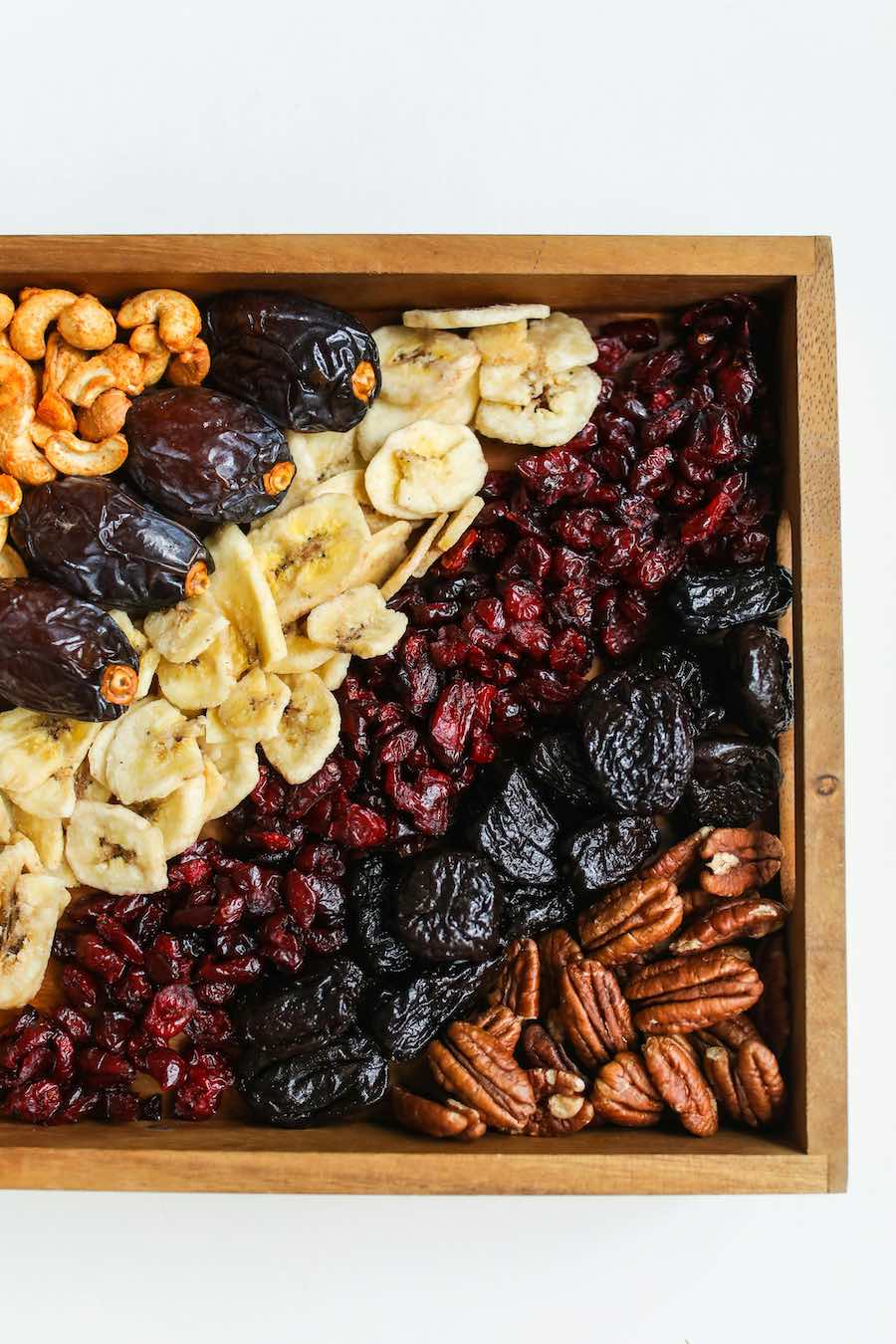Foods That Can Trouble Your Baby's Sleep
by Heidi Holvoet
Some foods can contribute to your baby's sleep struggles. Usually they cause enough discomfort to make (re-)settling difficult and/or wake up your baby or toddler more often than necessary.
These 3 food groups most affect sleep: (For each food group this also includes what you eat if you're breastfeeding, and the formula or solids your baby eats.)
- 🍩 Stimulating foods
- 🥚 Foods not well digested due to allergies, intolerances, food group properties, or immature digestive tract
- 🥕 Surprising foods we don't usually think of for causing discomfort (often very health ones!)
🍩 Stimulating foods

These include coffee, teas that have caffeine like black and green tea, sugary snacks, fizzy drinks, energy drinks, chocolate.
This doesn't mean you can't ever have coffee or your toddler can't ever have a snack containing sugar: just be extra careful during times when you're not getting great sleep.
In particular be careful in the 4-5 hours before bedtime (it can take that much, sometimes longer, for your baby to get rid of some stimulants - exact numbers highly vary per person).
These food groups are good to think of when your baby seems restless a lot of the time, finds it difficult to settle at nap time and evening bedtime, and even when awake you may notice they rarely seem really calm.
🥚 Foods not well digested due to allergies, intolerances, food group properties, or immature digestive tract
The most common culprits that we know here are foods containing (cow's) dairy, soy, eggs, seafood, and some food additives (like dyes and preservatives).

Also spicy foods and the classic gas-causing green leafy vegetables, cabbage, broccoli, asparagus, onions, sprouts, beans and lentils are good to keep on your radar.
Think of these food groups if your baby sometimes or often shows signs of digestive discomfort such as screaming/arching back, pulling up legs, being constipated or having diarrhea, being gassy, having eczema/rashes, having reflux. More on relieving gas and related discomforts here.
Your baby will be difficult to settle and stay asleep for longer stretches, wake up more often than necessary at night, and may want to feed more often than necessary.
It's normal for these discomforts to be more apparent at naps or nights than during the day when there are more distractions.
These signs of digestive trouble can be 'loud and clear' but are often also mild which can make it more difficult to suspect them. Therefore, good to keep these in mind and be aware of your baby's digestive discomfort.
Also think about each of these foods if your baby has recently started solid foods. Before 6 months the digestive tract isn't ready for most, and for some babies it takes several months after that before they can easily digest all foods.
Gorgeous Photo by Pegah Sharifi
🥕 Surprising foods we don't usually think of causing discomfort (often very health ones!)
As said above, the leafy green vegetables, and broccoli and the likes are super healthy though for some, or in some quantities, they cause digestive upset.

Dried fruits such as dates, sultanas, apricots too: the high content of natural sugars and fibers, super healthy as they are, can irritate your baby's digestive system. Same for the conservatives like sulfites that are often used in dried fruit.
Some babies are sensitive to the fructose in fresh fruits so for them even these healthy beauties can be less than great.
Consider these and maybe other not-usually-suspected food groups if you see changes in your baby or toddler's digestion, bowel movements for example. Or your baby seems uncomfortable sometimes but you haven't been able to put your finger on to why that is. Or, your baby just LOVES one type of food and eats a LOT of it; that can be a sign too.
Gorgeous photo by Polina Tankilevitch
What to do if you suspect one or more food groups of troubling your baby and their sleep?
First and foremost: if you suspect any health risk for your baby or your baby reacts severely to certain foods, or has unexplained digestive discomfort, consult your doctor right away and follow their advice.
If you know your baby is safe and sound medically:
* If the symptoms you notice are mild, your first helpful reaction can be simply to limit the amount of the foods you think could play, and see if any effect in the course of 10-14 days.
* If the symptoms are a bit stronger, or you currently have no idea what else could be making sleep so difficult: you can consider a simple home test by removing the suspected food group(s) for 10-14 days, e.g. "dairy-free, or "dried-fruit-free" for 2 weeks. Both for you and your baby if you breastfeed.
You can notice improvements within a few days but 2 weeks should give you a more reliable result.

It goes without saying, only do this if you're sure your baby will still be on a sufficiently nutritious and healthy diet. Consult a nutritionist or your doctor if you're unsure.
Good to realize that this doesn't mean you or your baby will never be able to eat these foods again, it's only a low-key test that gives you some first information (i.e. improvement in comfort and/or sleep).
If it turns out that yes one or more food groups were causing trouble; then you'll have all the info to set up a more detailed plan for the future - ideally with the help of a nutritionist, if necessary enquire about allergy tests, planning for re-introducing the foods again, etc.
Getting nutrition right is a complex matter: on one hand, a simple healthy diet is straightforward. It just gets a bit trickier if your baby doesn't easily digest any and all foods.
Reach out if you have any questions!
Be well! x Heidi

Baby waking every hour?
by Heidi Holvoet, PhD

A Bedtime Routine: Settling To Sleep Like A Charm
by Heidi Holvoet, PhD

Separation Anxiety
by Heidi Holvoet, PhD

Colic
by Heidi Holvoet, PhD

Why does my baby wake up every hour?
by Heidi Holvoet, PhD




